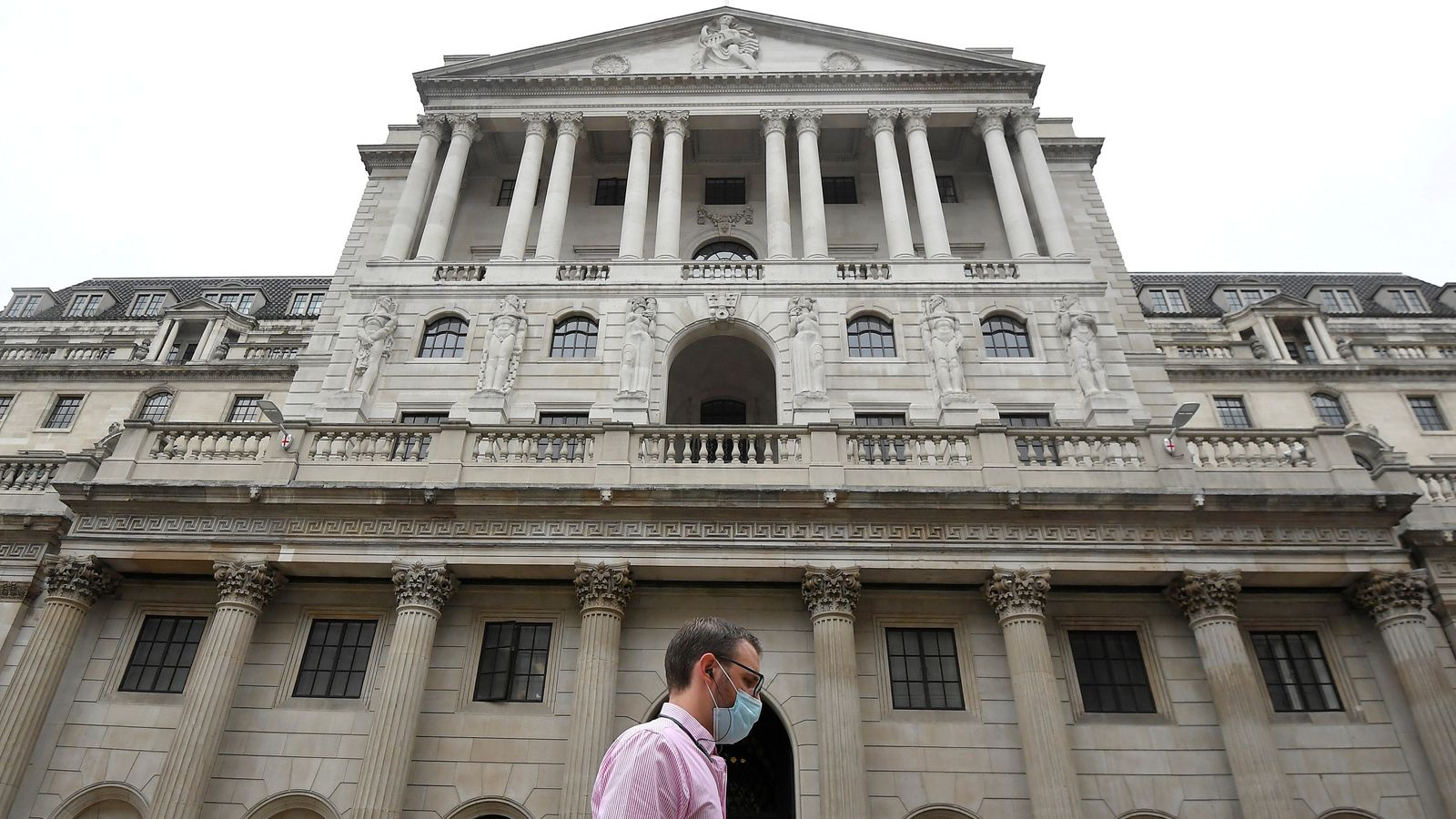Britain’s economy is “less weak” than previously expected but a recent rise in COVID-19 cases could take its toll on activity, the Bank of England has said.
It now sees GDP being 7% smaller in the current quarter than it was prior to the pandemic – not as bad as it had previously feared.
But policymakers also turned their attention to the uptick in coronavirus case numbers, as figures this week showed daily numbers had reached their highest level since May.
The BoE said: “The recent increases in COVID-19 cases in some parts of the world, including the United Kingdom, have the potential to weigh further on economic activity, albeit probably on a lesser scale than seen earlier in the year.”
It also pointed out that its forecast for economic recovery was based on the assumption of an “immediate, orderly move to a comprehensive free trade agreement with the European Union” – at a time when progress appears to be fraught.
“The outlook for the economy remains unusually uncertain,” it said.
The bank’s rate-setting monetary policy committee (MPC) made the comments as it announced interest rates were being kept on hold at 0.1%, while its separate bond purchase stimulus scheme will remain at £745bn.
But it also revealed that the MPC had been briefed on “plans to explore how a negative bank rate could be implemented effectively” if needed.
That is an idea that Governor Andrew Bailey has previously said is now part of the bank’s “toolbox” of possible measures.
Britain sank into its deepest recession on record earlier this year as the coronavirus lockdown crushed the economy – and the latest GDP figures show that, while it has started to rebound, it remained 11.7% off its pre-pandemic level in July.
The Bank of England says its analysis of payment data suggests consumer spending “continued to recover during the summer and is now at around its start-of-year level”.
:: Subscribe to the Daily podcast on Apple Podcasts, Google Podcasts, Spotify, Spreaker
That meant that, though businesses were still uncertain about prospects, the bank expects GDP to recover to 7% below its pre-pandemic level in the current third quarter which is “less weak than had been expected” in its August monetary policy report.
But it cautioned that, while economic indicators were a “little stronger” than had been foreseen last month, it was unclear how much impact this would have in the longer term.


